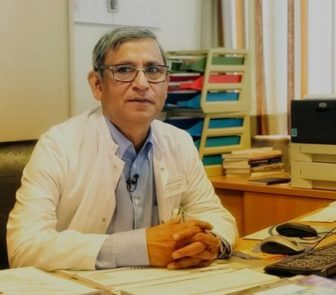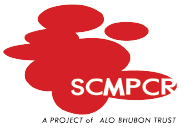
Prof. Dr. Golam Abu Zakaria
Chairman,
South Asia Centre for Medical Physics and Cancer Research (SCMPCR)
Cancer affects people in all countries regardless of their age, gender or socio-economic conditions. According to WHO, it is estimated that the global cancer burden will increase from 12.7 million new cases per year in 2008 to 21.4 million per year by 2030, with nearly two-thirds of all cancer diagnoses occurring in low- and middle-income countries. The South Asia region with its eight countries (Afghanistan, Bangladesh, Bhutan, India, Maldives, Nepal, Pakistan and Sri Lanka) has approximately one-fourth of the world’s and 40% of Asia’s population. This region is presently experiencing a shift in infectious disease to an increasing incidence of non-communicable diseases like cardiovascular and cancer. South Asian countries face a big challenge in all four key components of cancer control such as prevention, early detection, diagnosis and treatment. With respect to the global context, about 24.59% populations are present in South Asian area where the incidence of new cases is 10.23 % and the the burden of cancer death is 68.85%. This well-known fact indicates that this region of the world requires improvement strategies in cancer management.
For a better oncologic care, a team consisting of physicians, medical physicists and technicians are necessary. However, unfortunately, in some countries including Bangladesh of this region, still medical physicists are not mandatory personnel in the public hospitals, which will lead to inaccurate diagnosis and treatment. In order to create awareness of the importance of medical physicists in cancer treatment, medical Physics education startes through some seminars at the Bangladesh University of Engineering and Technology (BUET) in 1996 in cooperation with the Task Group 16 “Medical Physics in the Developing Countries” of the German Society for Medical Physics (DGMP). As a result, a fully-fledged “Department of Medical Physics and Biomedical Engineering (MPBME)” was established in 2000 at Gono University, Dhaka, which offers a two-year Master and a four-year Bachelor course in Medical Physics and Biomedical Engineering presently.
At that time, there was a tremendous lack of potentials and resources to continue this new subject. Therefore, a collaboration protgramme between Gono University and Heidelberg University started under the financial support of German Academic Exchange Programme (DAAD) in 2002. Until now, 90 manpower (teachers, physicians, medical physicists, technologists, PhD & MSc students) has already been received training through this collaboration. In addition, from the beginning of the MPBME, German experts have been visiting Gono University for a standard period to strengthen medical physics education and train the respective personnel involved in cancer care.
However, being professional in medical physics discipline in South Asia region we have a long way to go compared to developed countries. Accreditation and certification of medical physicists is a pivotal issue nowadays, which requires defined residency training, qualified medical physicist (QMP) and accredited center in the respective country or region. Among the South Asian countries, medical physicist profession is well recognized in both public and private hospitals only in India. Although medical physics education has already been established in Bangladesh and number of medical physicists is increasing gradually, still it is far from the goal due to the lack of national recognition and defined training programme. Therefore, in order to address the aforementioned issues, South Asia Centre for Medical Physics and Cancer Research (SCMPCR) started its journey in 3rd July 2018 with a mission to advance cancer care practice in Bangladesh, and in other countries in South Asia by disseminating scientific and technical information, fostering the educational and professional development and promoting the highest quality medical services for patients. It will also expand its activities in other developing countries.
